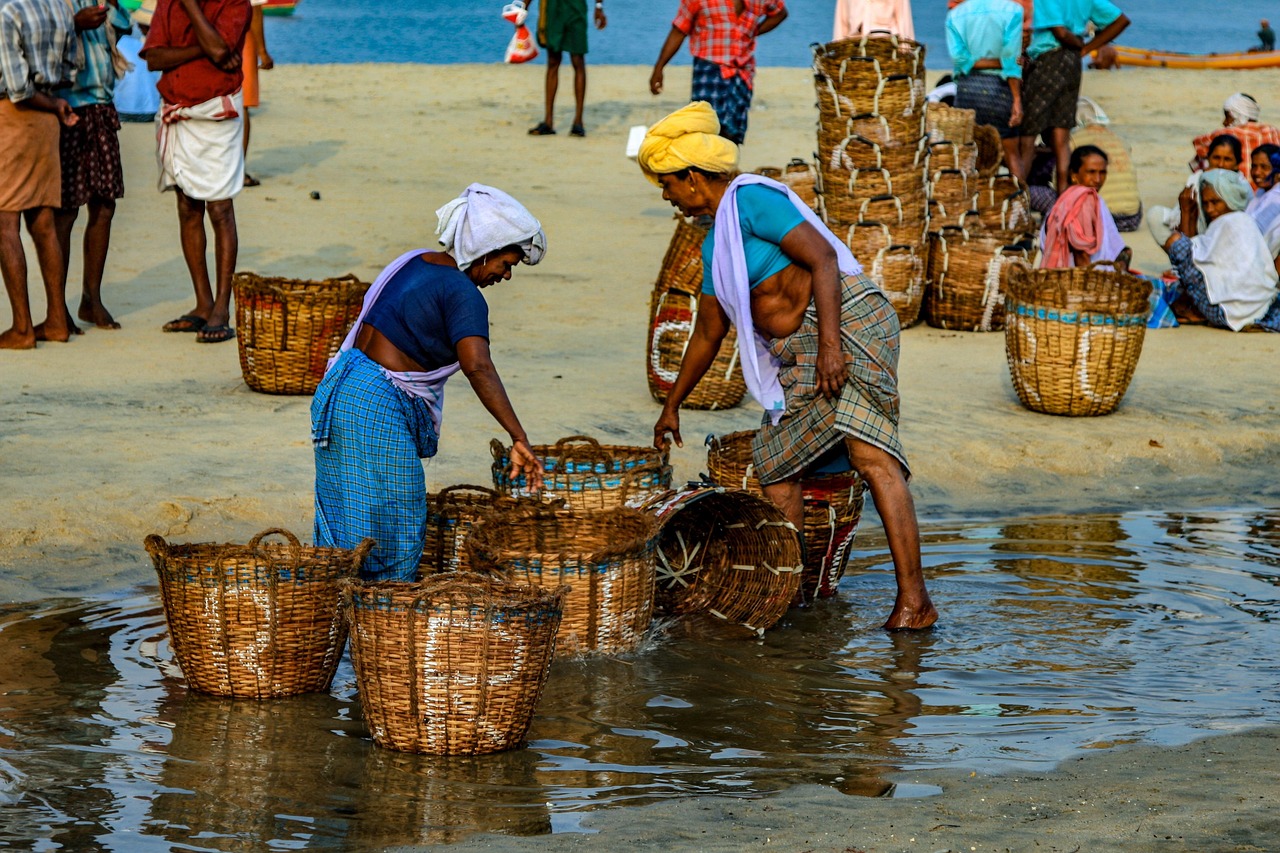Mercy Antony was born in the fishing village of Adimalathura in Thiruvananthapuram district, Kerala, India. She grew up watching her mother, a fish vendor, shoulder the family’s financial burden. However, when her mother fell ill, 15-year-old Mercy had no choice but to step into the market. For the past 35 years, she has been working as a fish vendor, ensuring her family’s survival through sheer determination.
Every morning at 3 AM, Mercy begins her day by completing household chores before setting out at 5 AM to collect fish from Adimalathura fishing harbor or nearby shores when supply is scarce. By 8 AM, she reaches the Mukkola market, where she has built a loyal customer base over the years. Her workday extends until 11 PM, with a short break in between. Each day, she invests INR 10,000–15,000 (USD 115 – 175) in purchasing fish, hoping to earn a profit of INR 1,000–1,500 (USD 10-17). However, there are days when she incurs losses, making financial stability a constant struggle.
In the early stages of her business, Mercy had little awareness of financial management and struggled to track her daily earnings and expenses. Her turning point came when she joined the Self-Employed Women’s Association (SEWA), where she received financial literacy training and learned to evaluate her income and expenses effectively. Through her active participation, she took the initiative to organize fellow women fish vendors in Adimalathura, leading to the formation of a new operational unit. SEWA appointed her as the unit convener and later as the convener of the Fish Vendors Trade Committee.
Mercy’s resilience was put to the ultimate test in 2017, when Cyclone Ockhi wreaked havoc in the Northern Indian Ocean, causing immense destruction. Thiruvananthapuram and Kollam districts, home to thousands of fishing families, bore the brunt of the calamity. The cyclone claimed the lives of over 350 people, including Mercy’s husband, her primary source of support.
In the aftermath, Mercy faced overwhelming financial difficulties. With fishermen unable to venture out to sea, the fish supply dwindled, crippling her business. To sustain her family and meet daily expenses, she was forced to take loans, leading to mounting debt.
Recognizing the urgent needs of the fishing community, SEWA, supported by the APFP-FO4A program, took action. A public hearing was organized, bringing together government officials, media, the Minister of Fisheries, and fish workers’ leaders to shed light on the pressing concerns of fisherfolk. Mercy’s struggles—both in managing her business and overcoming debt—were highlighted. As a result, SEWA, in collaboration with the Finance Department, successfully secured government intervention to partially relieve her debt, offering her much-needed financial relief.
Today, Mercy has regained stability and continues to run her fish vending business. She purchases around INR 15,000 (USD 175) worth of fish daily, ensuring the livelihood of not only her own family but also her mother, four children, and her sister’s family. With SEWA’s continuous support and the APFP-FO4A program’s interventions, she has transformed her hardships into opportunities, emerging as a leader in her community and an advocate for other women fish vendors.
APFP-FO4A is implemented by the consortium Asian Farmers’ Association for Sustainable Rural Development (AFA) and La Via Campesina (LVC) and funded by the European Union and the International Fund for Agricultural Development (IFAD).




Comments are closed